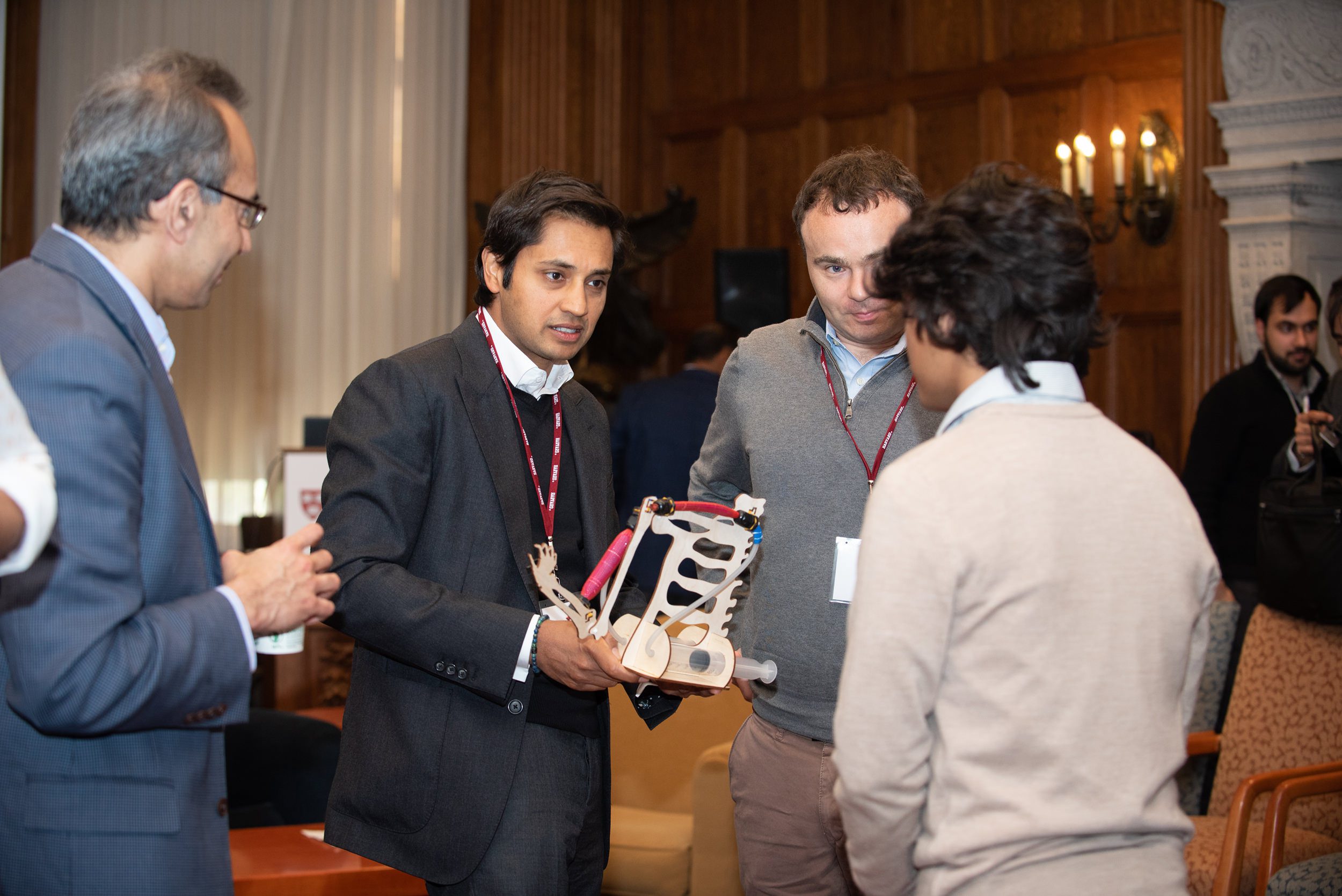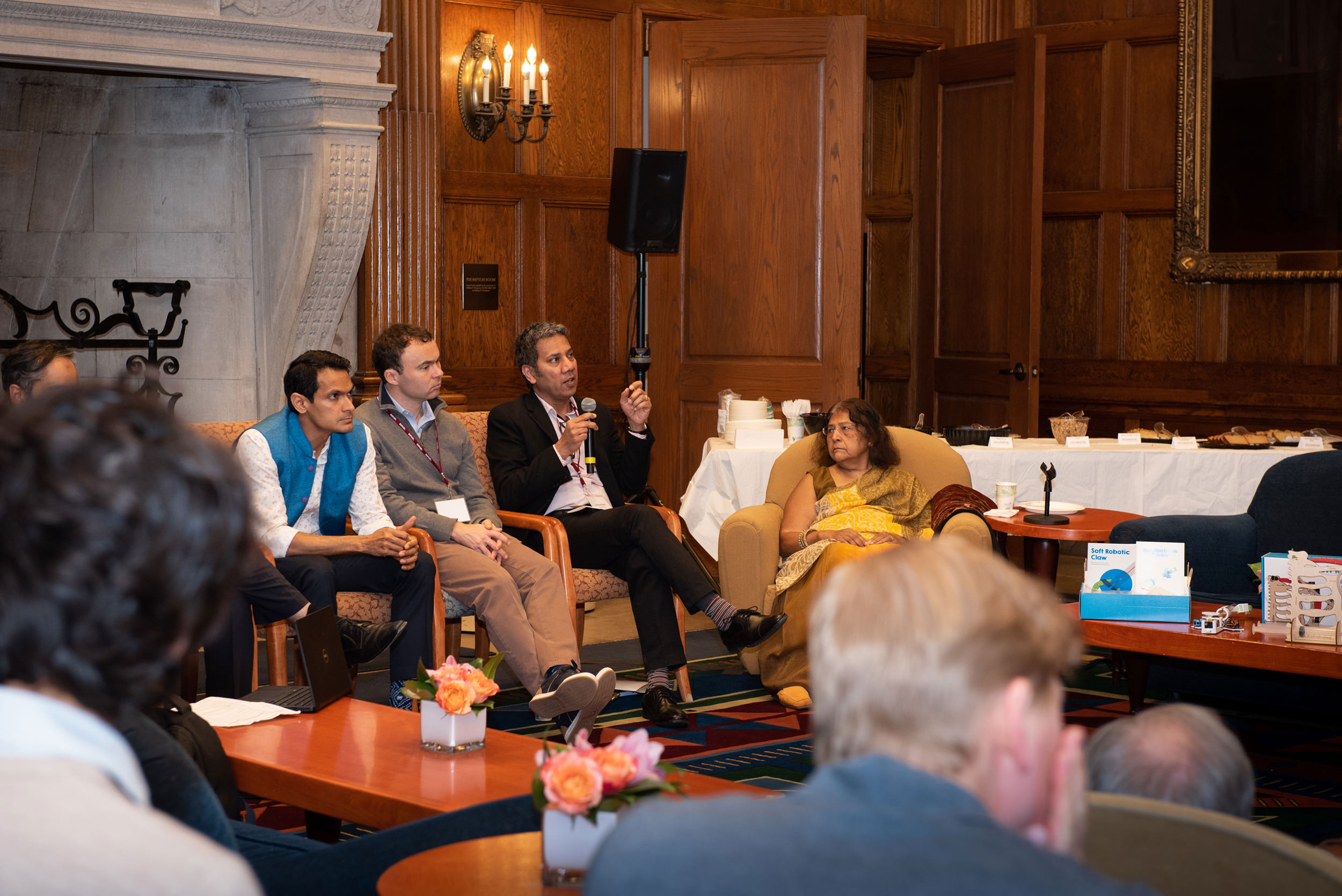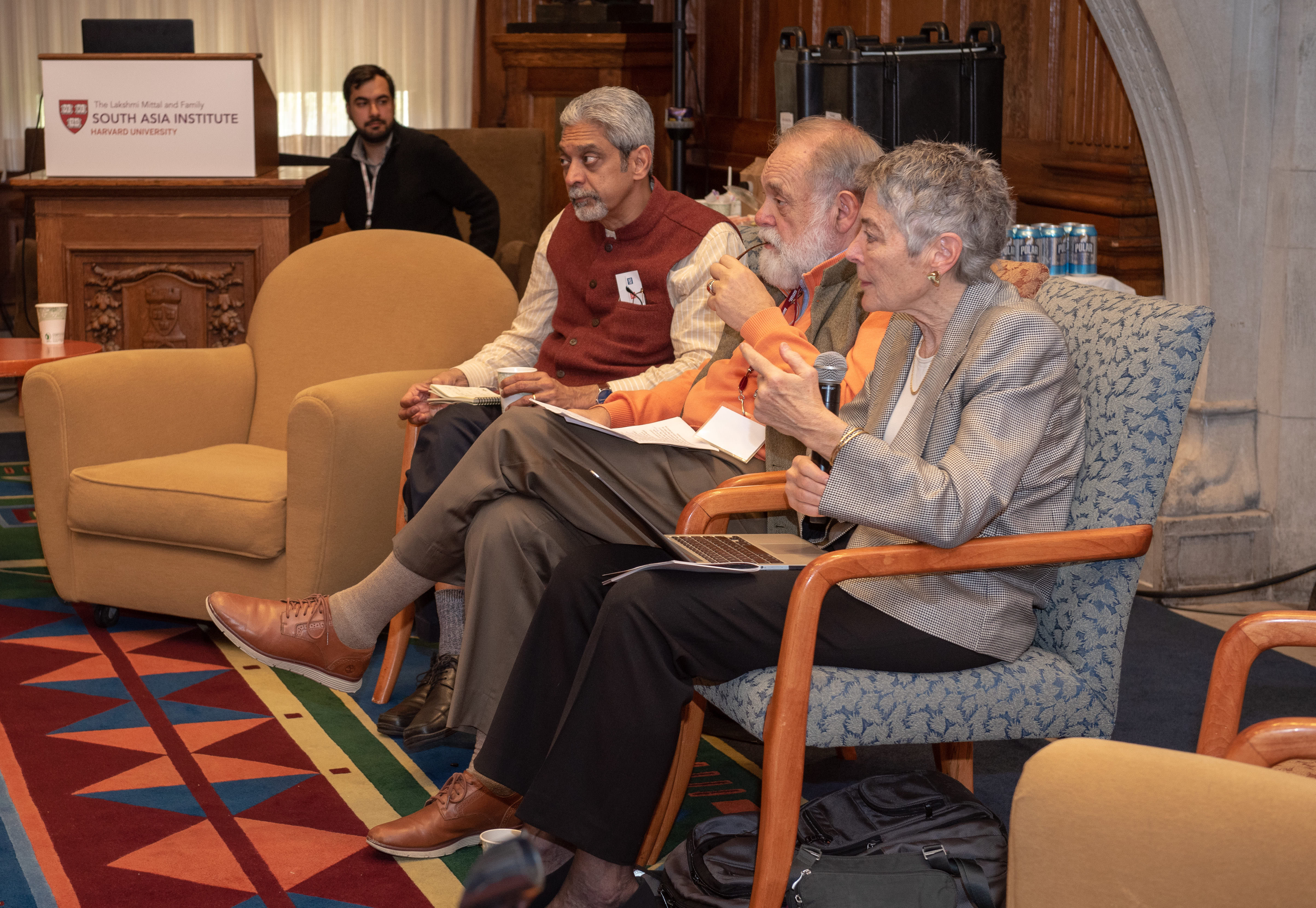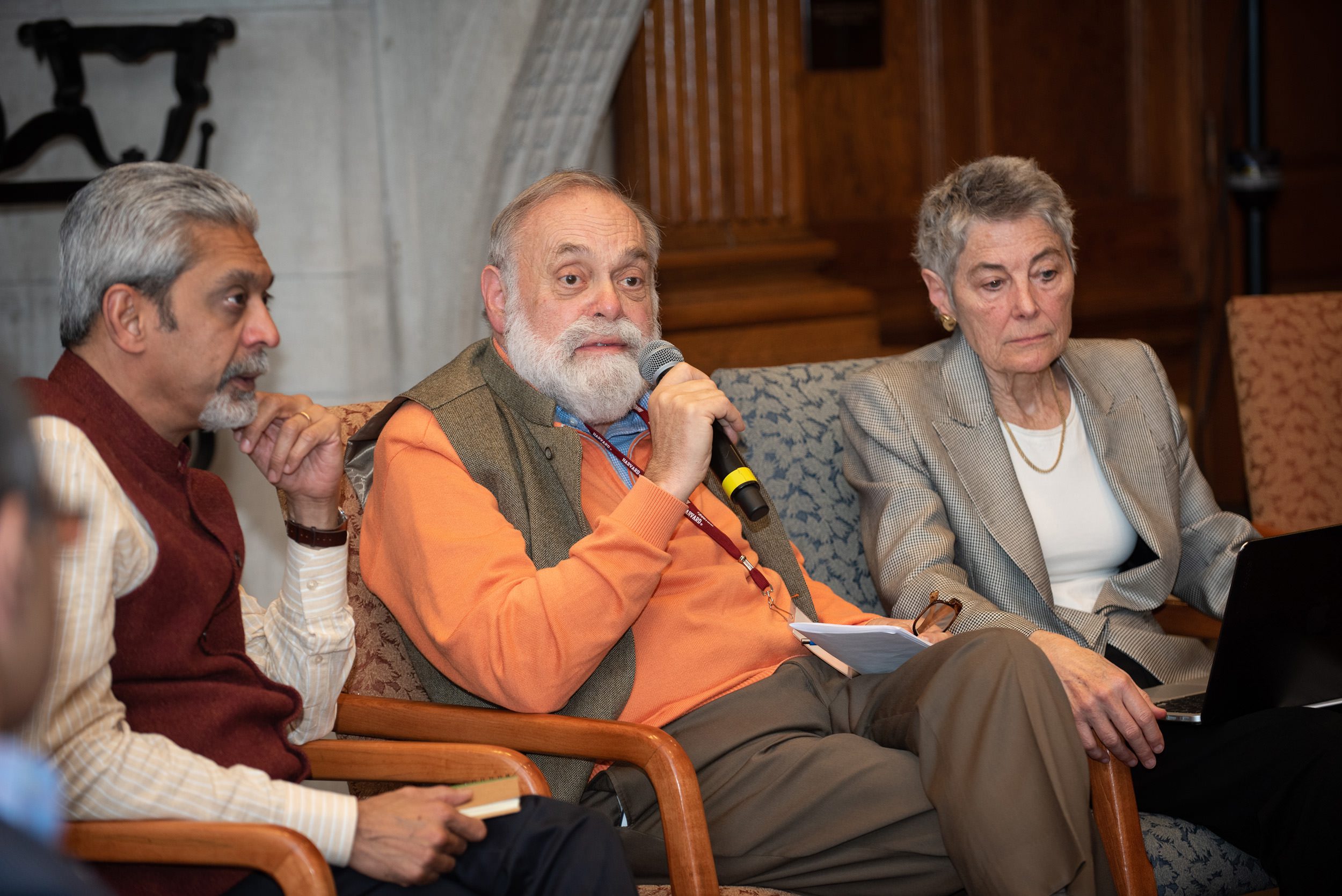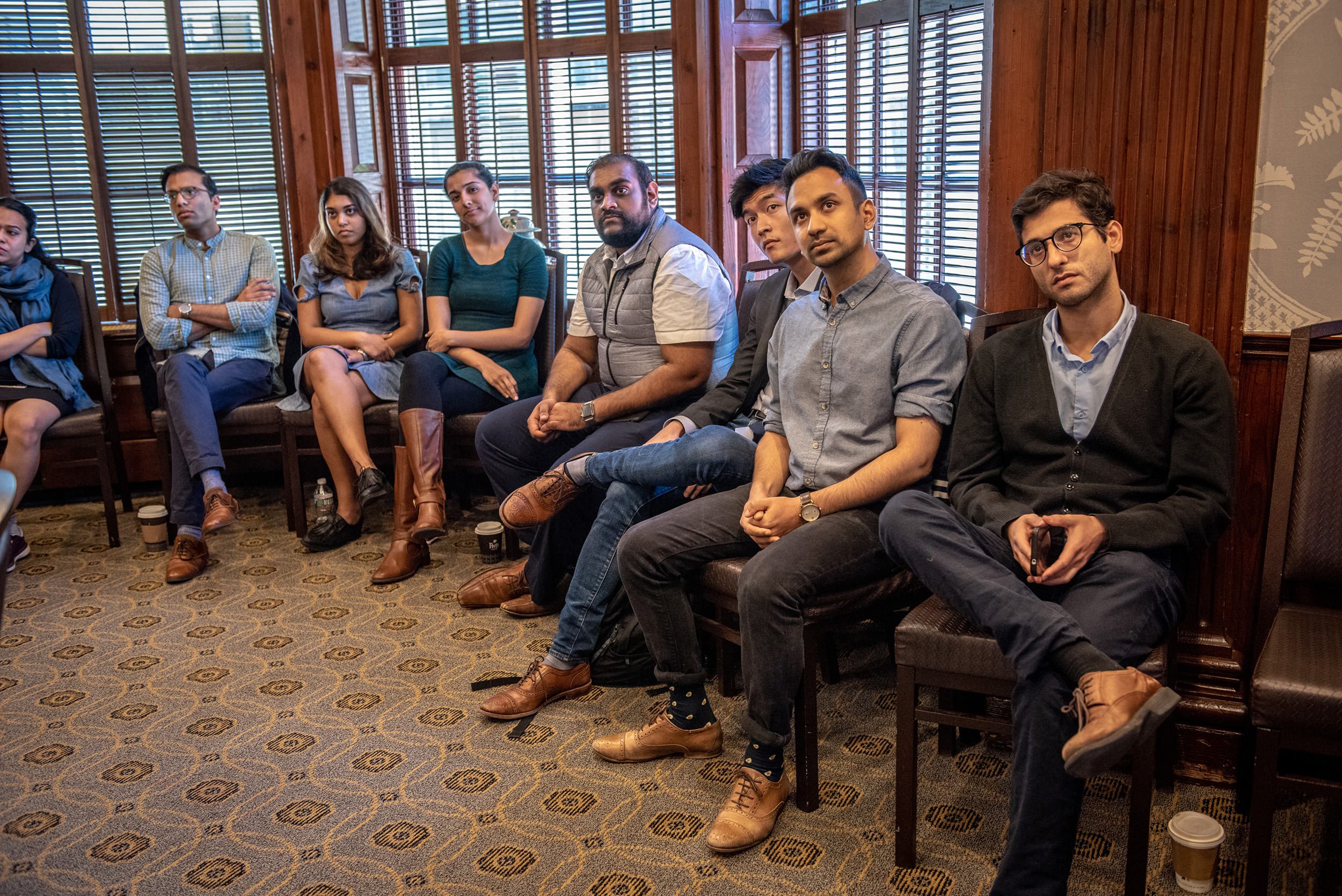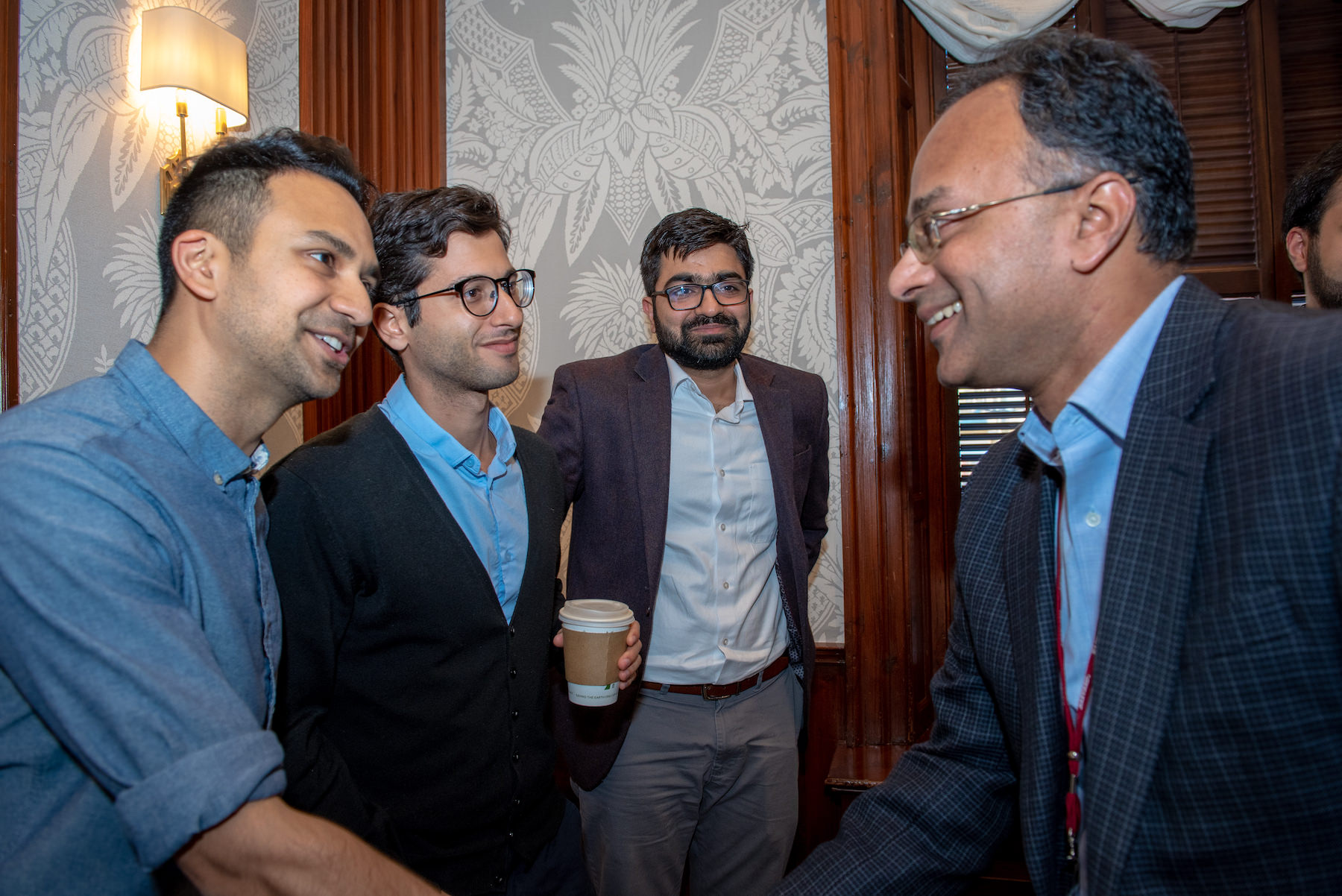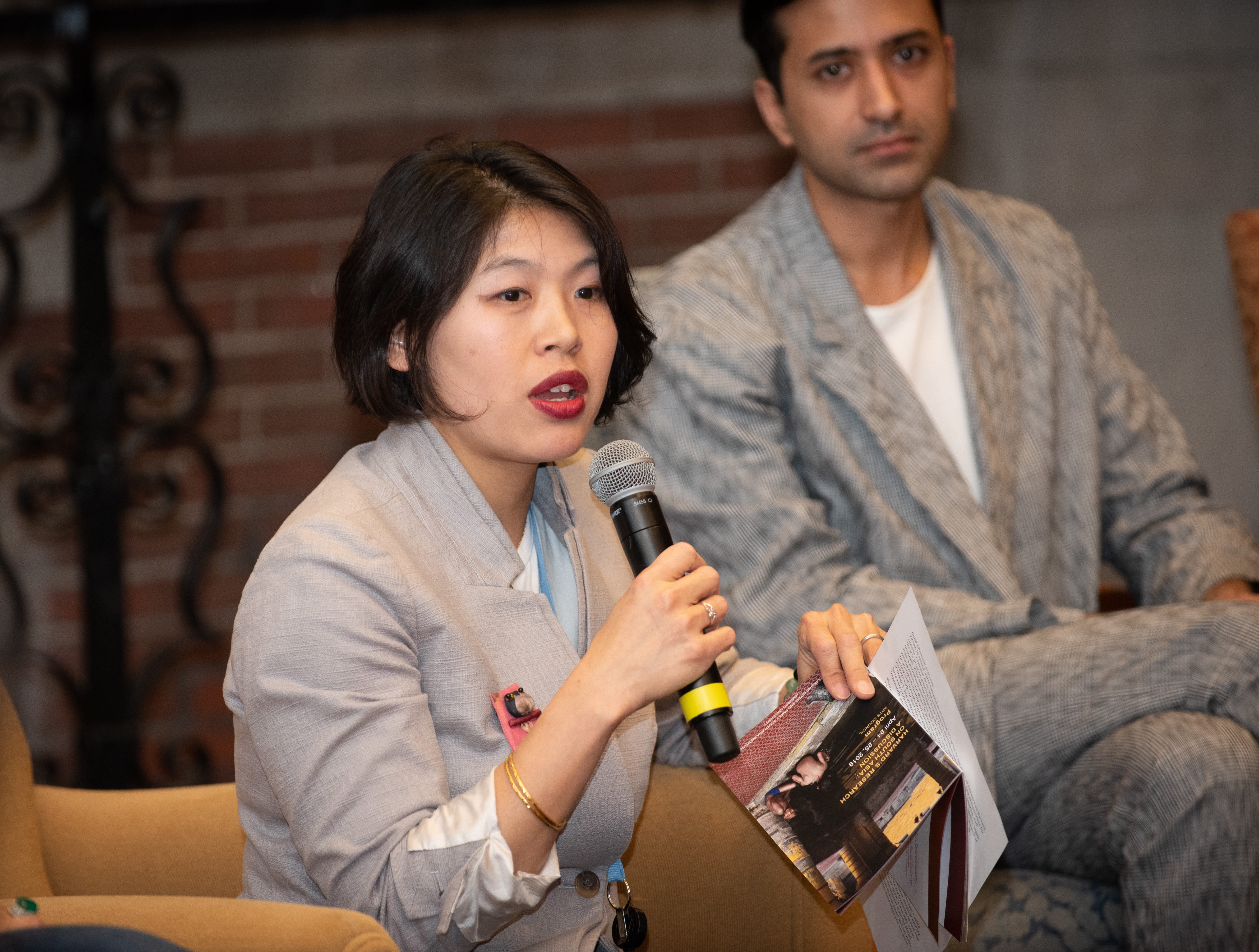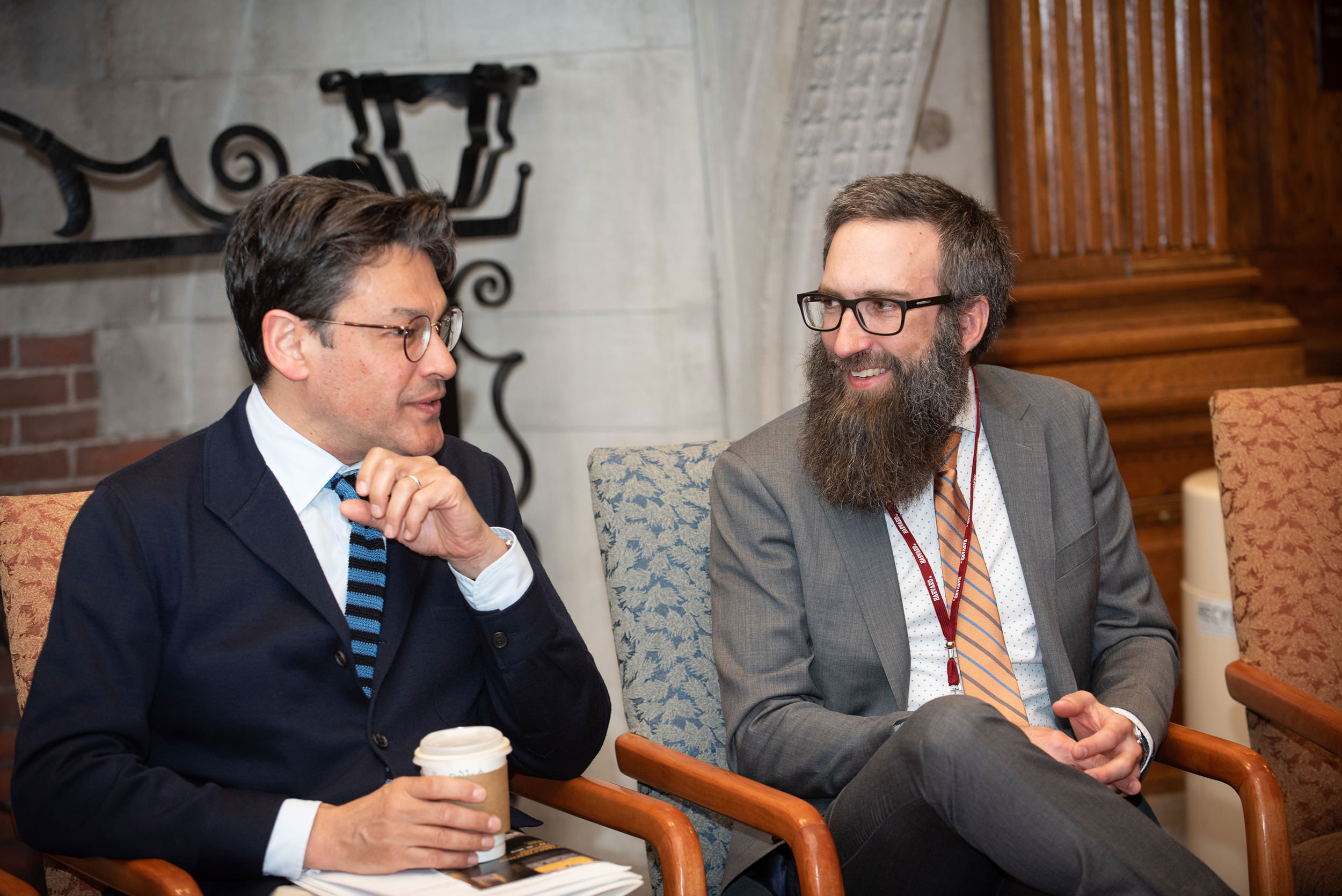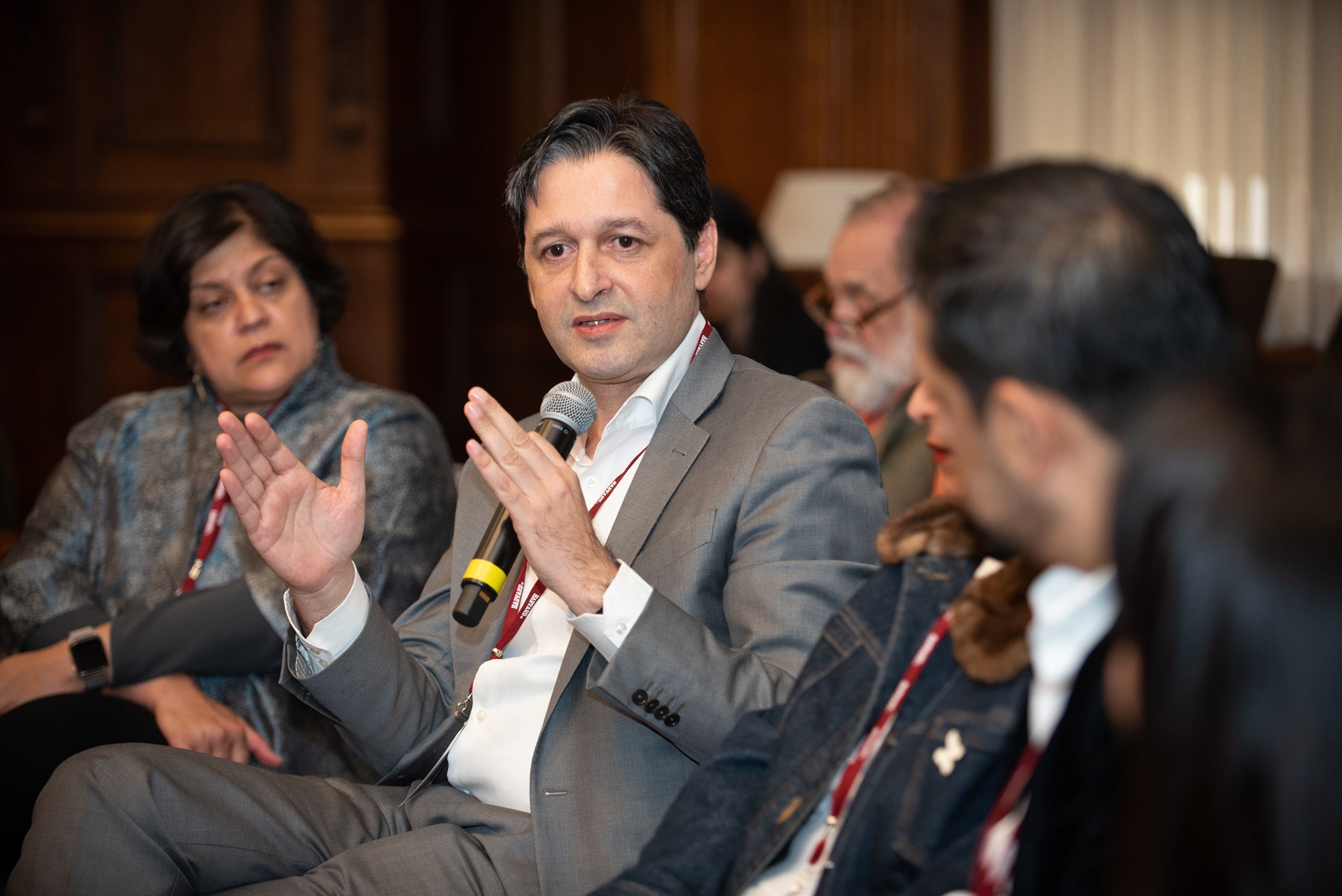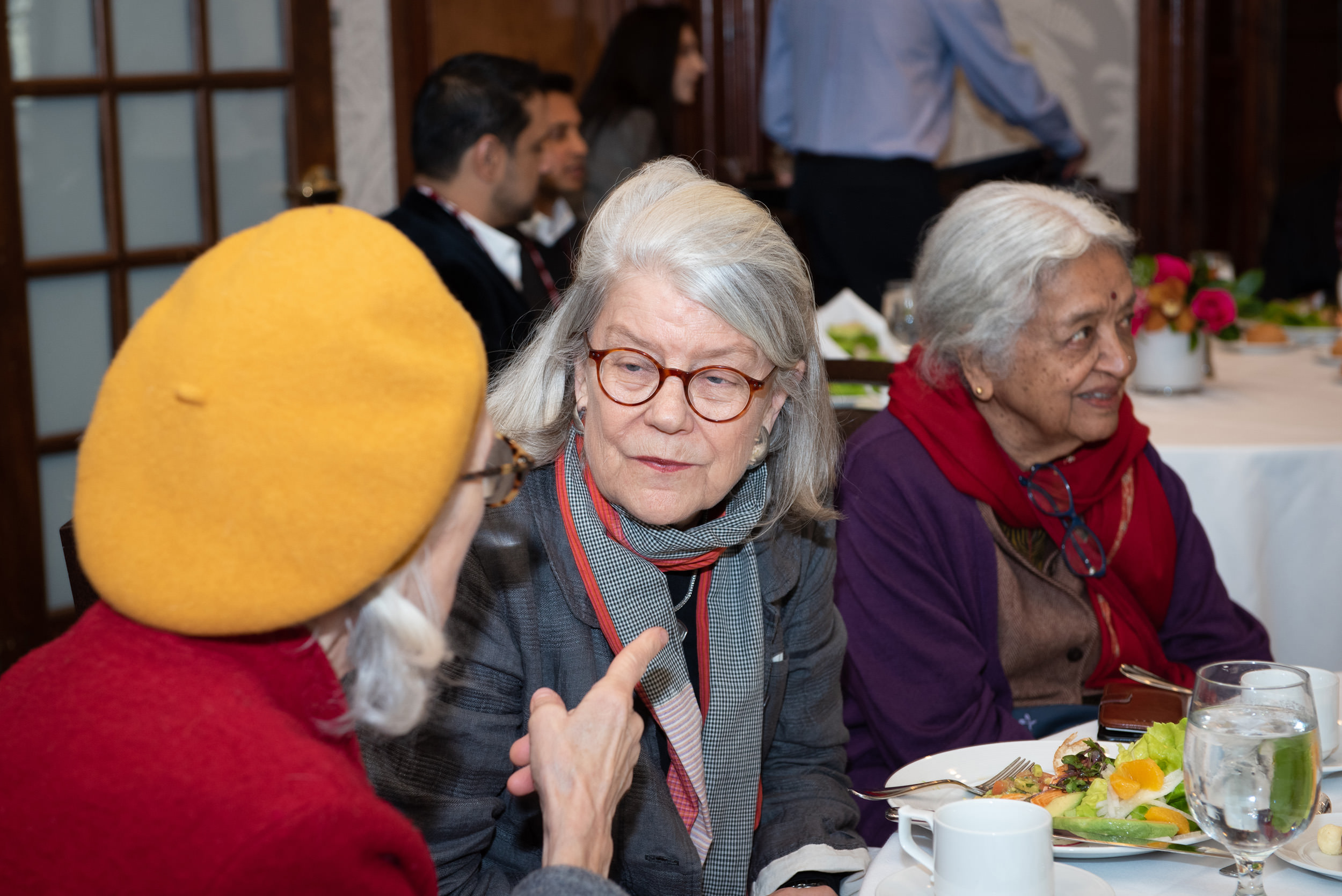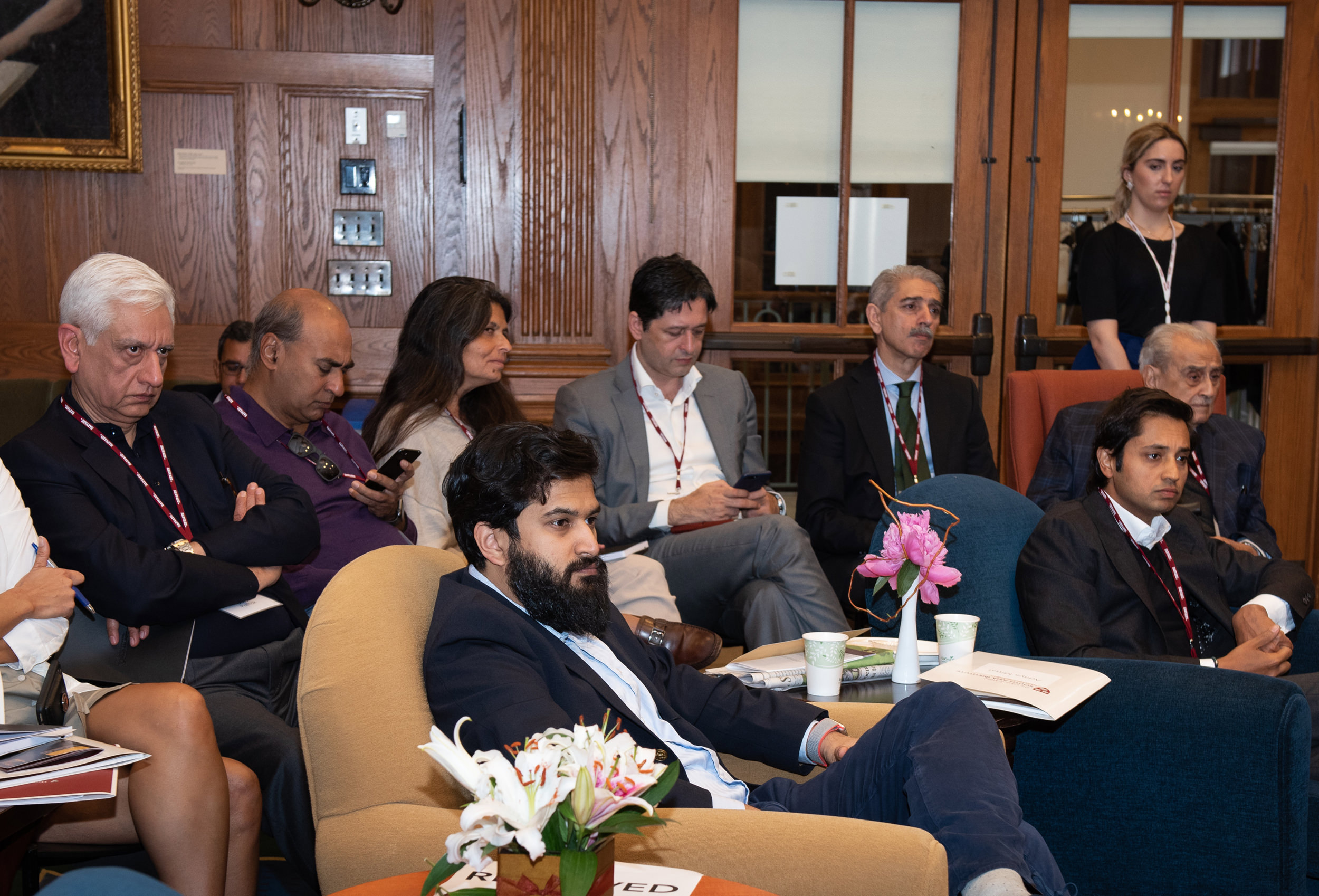2019 Annual Cambridge Symposium
The Mittal Institute’s 2019 Annual Cambridge Symposium took place on April 25, 2019, and brought together Institute supporters and Harvard faculty for a fascinating and informative day centered around the Mittal Institute’s and Harvard’s scholarship on science and technology, health, arts, and education and livelihood in South Asia.
Session I: Science and Technology in South Asia
Science and technology play a central role in societal development. Applying cutting-edge scientific advances to meet real-world needs requires a knowledge of the latest technology, domain expertise, and the contextual intelligence needed to operate in emerging markets. Academia can play a vital role in catalyzing this juxtaposition of industry, scientific rigor, and societal need. The session on Science & Technology brings together faculty from across Harvard to discuss issues that address the relevance of life sciences, Big Data, and Artificial Intelligence for healthcare systems and methods and tools to enhance STEM education in developing countries.
Session I Panelists
- Moderator: Tarun Khanna, Jorge Paulo Lemann Professor, Harvard Business School; Director, Mittal Institute
- Venkatesh Murthy, Professor and Chair of Molecular and Cellular Biology, Harvard University
- Muhammad H. Zaman, Howard Hughes Medical Institute Professor, Boston University
- Conor Walsh, Gordon McKay Professor of Engineering and Applied Sciences, John A. Paulson Harvard School of Engineering and Applied Sciences
- Satchit Balsari, Assistant Professor in Emergency Medicine, Harvard Medical School
- Sheila Jasanoff, Pforzheimer Professor of Science and Technology Studies, Harvard Kennedy School
Session II: Health and South Asia
Disruptions in society due to loss of place and identity affect an individual’s health and agency. The 1947 Partition of British India reflects a microcosmic, historical view of the humanitarian impact of the forced displacement, and similar issues can be seen across South Asia today. Three such contemporary issues are changes in environment, mental health, and nutrition. The role of data in understanding the historical consequences of the Partition as well as understanding and combating these contemporary challenges will be explored.
Session II Panelists
- Moderator: Jennifer Leaning, François-Xavier Bagnoud Professor of the Practice of Health and Human Rights, Harvard T. H. Chan School of Public Health
- Richard Cash, Senior Lecturer on Global Health, Harvard T. H. Chan School of Public Health
- Vikram Patel, The Pershing Square Professor of Global Health, Harvard Medical School
Seed for Change Student Competition Final Presentations
This is the fourth year of the Mittal Institute’s Seed for Change Program. Through a University-wide competition, this program aims to develop a vibrant ecosystem for innovation and entrepreneurship. Each year, the Mittal Institute invites students from across Harvard to submit ideas that positively impact societal, economic, and environmental issues in the region. Four finalists were shortlisted to present:
- Gramhal: A social enterprise that aims to redesign India’s agriculture market to build smallholder farmers’ agency and improve their livelihoods.
- Riskboard: A digital dashboard tool for corporations, investors, and NGOs that want to monitor human rights abuses and political risks as they occur, aggregating news and social media data and political and economic indices.
- Chaddhal: A non-profit business that aims to bring insecticide-treated clothing technology to populations that require it the most and to empower textile workers and communities in India.
- Meet: An employment app that connects verified employers and job-seekers, providing both with trusted information such as reviews, job openings, and profiles to support better matching.
The winning team, Gramhal, received $40,000. Two runner-up teams, Riskboard and Meet, received $5,000 each.
Seed for Change Jurors
- KP Balaraj, Co-Chair, Advisory Council, Mittal Institute
- Meera Gandhi, Founding Member, Advisory Council, Mittal Institute
- Nadia Samdani, Founding Member, Arts Council, Mittal Institute
- Osman Khalid Waheed, Founding Member, Arts Council, Mittal Institute
Gramhal
- Vikas Birhma, MPP ’19, Harvard Kennedy School
- Pankaj Mahalle, Tata Institute of Social Science, Mumbai
Riskboard
- Pradeepan Parthiban, ALM ’19, Harvard Extension School
- Arjun Bisen, MPP ’19, Harvard Kennedy School
- Ryan Jiang, ’20, Harvard College
- Luka Caratsch, University of St. Gallen
Chaddhal
- Rameen Rana, ’20, Harvard College
- Aishah Ahmed, ’20, Harvard College
Meet
- Vish Srivastava, MDE ’19, Harvard Graduate School of Design and Harvard John A. Paulson School of Engineering and Applied Sciences
- Ankit Chugh, Medha, India
Session III: Arts and South Asia
There is a need for conservation of South Asian art and historical sites. The panel will discuss the ways in which such conservation can be actioned, including collaborations between Harvard and art and cultural institutions in South Asia. Furthermore, the panel will delve into the role of academia in regional, large-scale public events that bring art to the public. The impact of such events will be discussed through the case studies of the Dhaka Art Summit and Lahore Biennale.
Session III Panelists
- Dipti Mathur, Chair, Arts Council, Mittal Institute
- Homi Bhabha, Anne F. Rothenberg Professor of the Humanities, Harvard University
- Hoor Al Qasimi, Director, Sharjah Art Foundation and Curator, Lahore Biennale
- Jeff Steward, Director of Digital Infrastructure and Emerging Technology, Harvard Art Museums
- Jerold Kayden, Frank Backus Williams Professor of Urban Planning and Design, Harvard Graduate School of Design
- Jinah Kim, Gardner Cowles Associate Professor of History of Art and Architecture, Harvard University
- Osman Khalid Waheed, Founding Member, Arts Council, Mittal Institute
- Nadia Samdani, Founding Member, Arts Council, Mittal Institute
- Narayan Khandekar, Director of the Straus Center for Conservation and Technical Studies and Senior Conservation Scientist, Harvard Art Museums
- Rahul Mehrotra, Professor of Urban Design and Planning, Harvard Graduate School of Design
- Rajeeb Samdani, Founding Member, Arts Council, Mittal Institute
- Shanay Jhaveri, Assistant Curator, South Asia, Modern and Contemporary Art at The Metropolitan Museum of Art, New York
Session IV: Education and Livelihood in South Asia
The impact of education and livelihood in a developing region such as South Asia cannot be overstated. The panel will look at how education and livelihood can be made effective through policymaking, research, and teaching. What role can leading institutions of higher education play in developing the pedagogy in and of South Asia?
Session IV Panelists
- Diana L. Eck, Professor of Comparative Religion and Indian Studies, Harvard University
- Emmerich Davies, Assistant Professor of Education, Harvard Graduate School of Education
- Jacqueline Bhabha, Professor of the Practice of Health and Human Rights, Harvard T. H. Chan School of Public Health
- Martha Chen, Lecturer in Public Policy, Harvard Kennedy School

